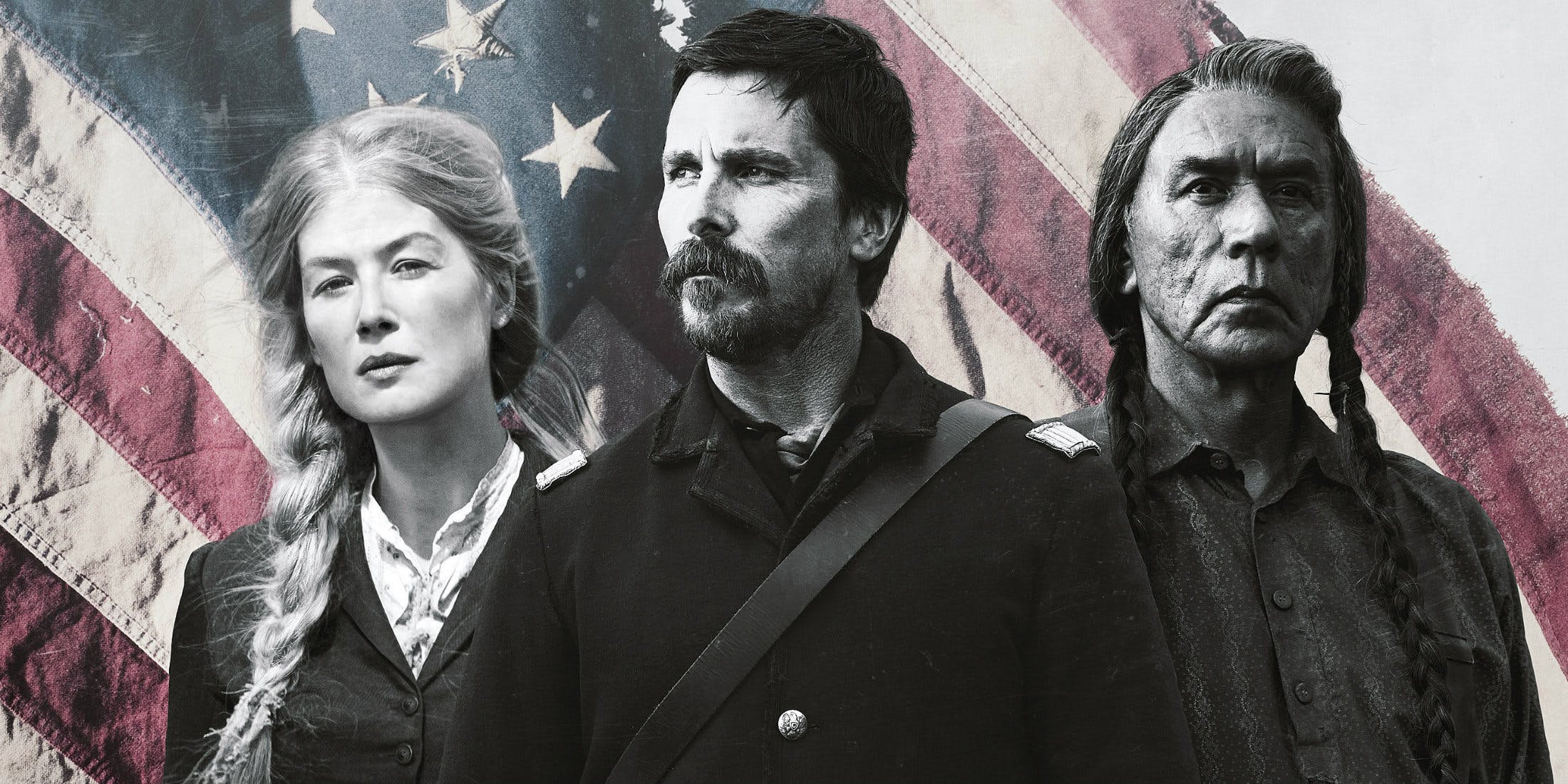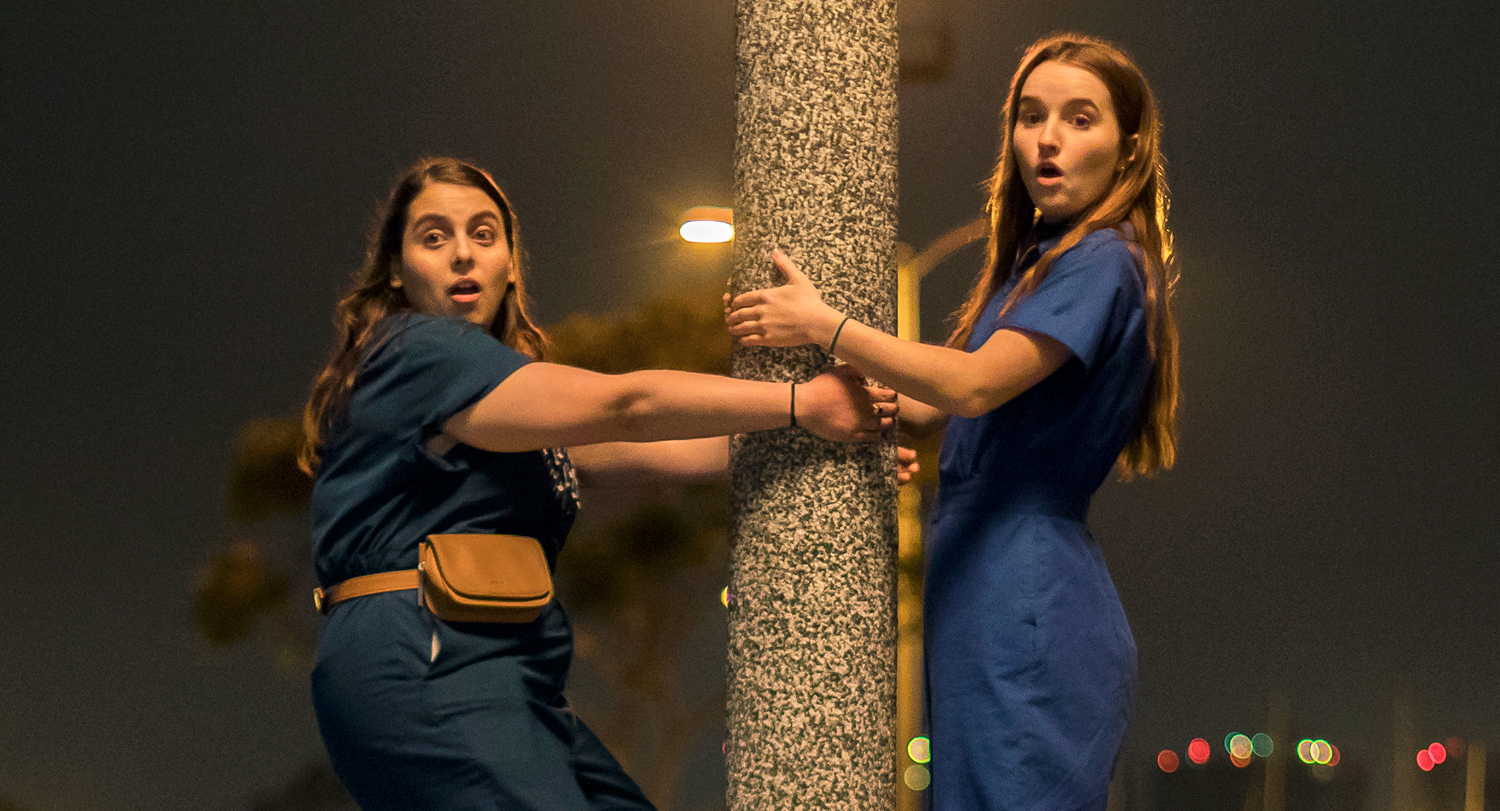Hostiles tells the story of a legendary army captain (Christian Bale) who is known for the hundreds of Native Americans he has killed. He is tasked with escorting a dying war chief (Wes Studi) and his family to their homeland, which he accepts with intense reluctance. This is a journey that will test all involved, and could be the army captain’s greatest redemption.
While watching Hostiles (dir. Scott Cooper) for the first time, I was in constant admiration of how beautiful it was, how nicely shot, how resonantly scored, how confident it was in its own direction, even if—admittedly—there wasn’t a great deal to set it apart from other westerns of its kind except for its brilliant cast and somewhat poetic brutality. And although it’s good in its own right, I was plagued by an ever-present “what if,” which left the film I got, instead of the one that could’ve been, sadly forgettable and ultimately bordering on generic.
What I kept wishing this film could’ve been—as much as I hate and typically avoid judging a film based on “what could’ve been” instead of “what is”—was a story from the Native American point of view. Wes Studi is an incredible actor. I’ll never forget his role as the chilling Magua in Last of the Mohicans. And although Hostiles does make efforts to challenge the racist nature of its genre’s past, it is still a story focused quite squarely on Christian Bale’s captain. Make no mistake, his character’s story is a compelling one, but it is also nothing that the western genre hasn’t seen before. I couldn’t stop from imagining this story from the point of view of the legendary dying war chief and his family, what they would experience, and how Bale’s arc of gritty and morally complicated redemption would look from the outside, from their perspective. Instead, the Native American characters are hardly focused on at all, and are more a presence to the side than ever falling to the focus. It’s a crime in its own right to waste a talent like Wes Studi. I couldn’t help my deeper interest in what the story was like for the Native American side-characters, especially through the eyes ofthe dying war chief who is as prominent, in the story, as Sitting Bull. I think it would’ve made for a more interesting and powerful film in nearly every aspect. And not only that, it arguably would have made the film important.
On its own, Hostiles is a visually beautiful film, satisfying as a western with the bonus of the ideas it explores, how it meditates beautifully and brutally on death and the blurred lines of morality. But it is also melodramatic and clunky film. Characters don’t cry quietly, they go out in a field and weep and yell but their yells are drowned out by grand dramatic music. The past isn’t hinted at realistically, it’s explained the audience knows exactly what this character or another is about, and what they’ve been through. And finally, most disappointingly, Hostiles isn’t merely familiar and obvious on its own, it also reaches for a future in the treatment of Native Americans by the western genre, but still doesn’t consider telling the story from their point of view. The narrative is the same as it’s always been, not only in the sense of the specific story this western is telling but in a grander cultural sense. And, to me, this leaves the film in the shadow of what could’ve been—something else to place onto a familiar shelf, despite it being good if a somewhat generic film, with little to make it worth picking up again over the others of its kind.



